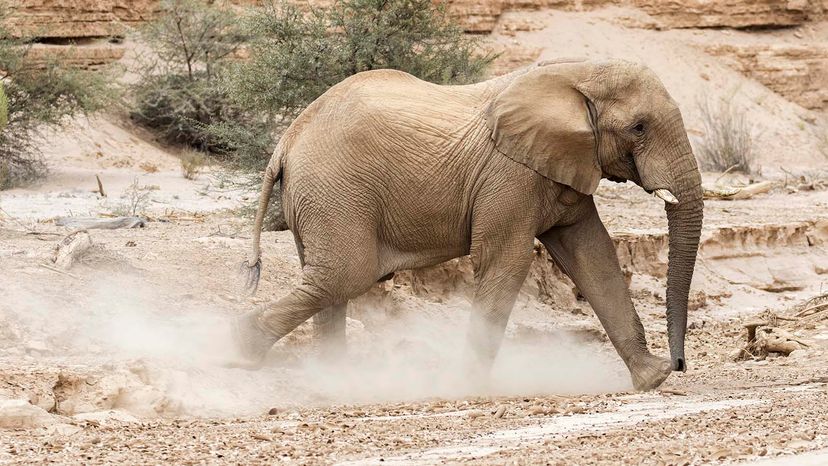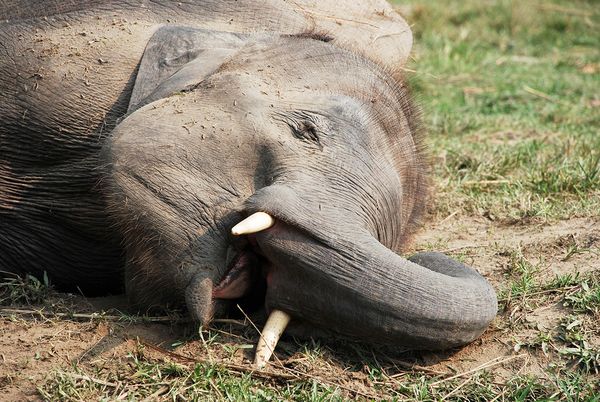
Everybody knows cats detest water andcucumbers, and dogs hate thunderstorms and fireworks. Elephants are famous for being spooked by mice, but turns out theydon't really have a strong opinion about rodents of any sort. What really gives them the willies is honeybees.
Researchers studying African bush elephants (Loxodonta africana) in South Africa's Greater Kruger National Park have found that the pheromone released by angryhoneybeescan be detected by elephants. Although those who spend time around herds of elephants have observed the goliath land mammals' aversion to bees — they've been observed going so far as rerouting elephant highways to avoid particularly active hives.
Advertisement
However, it'slong been assumedthey were taking auditory clues from the insects — after all, an angry swarm of bees can make quite a commotion. In astudypublished in the July 23, 2018 issue of Current Biology, the research team reports that elephants have receptors for the pheromone released by honeybees to signal to each other it's time to square up with an adversary. And the elephants take this as a signal to scram.
The researchers tested this by putting a sock filled with a slow-release blend of honeybee alarm pheromones around a watering hole frequented byelephants. As elephants visiting the spot approached the sock to inspect it, 25 out of 29 of them backed away in alarm once they got a whiff of the bee pheromone. The similar-looking control sock at the same watering hole was met with curiosity by the elephants, but not the same fear — some even tried to eat it.
This information is useful for those trying to protect elephants. If honeybee pheromone can act as an elephant repellant, it could help scientist keep the animals away from places like agricultural areas that sometimes create elephant-human conflict.
Advertisement





